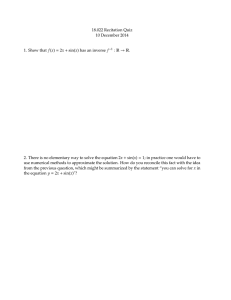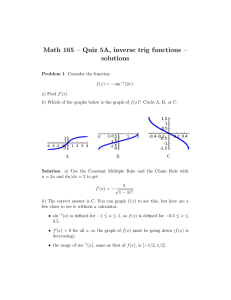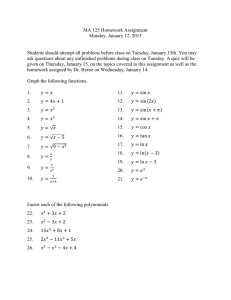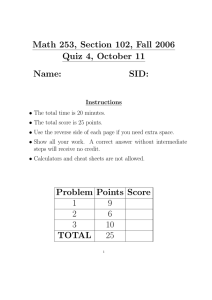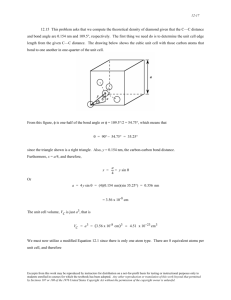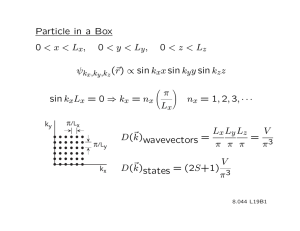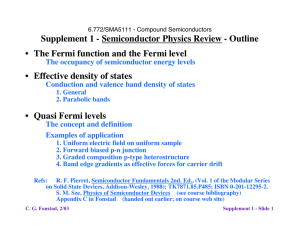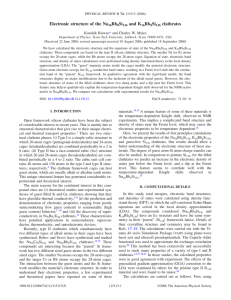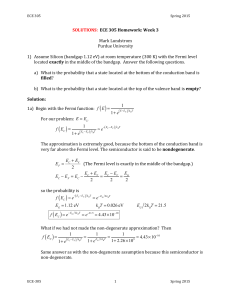PH255 Additional Topics for the Final Exam
advertisement
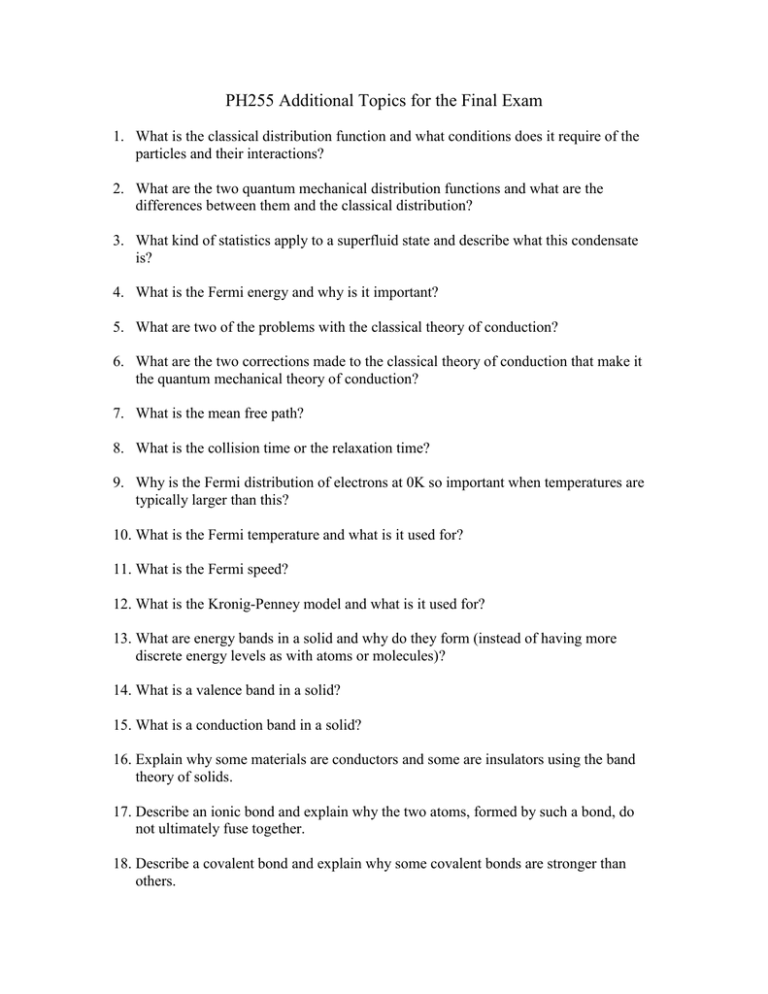
PH255 Additional Topics for the Final Exam 1. What is the classical distribution function and what conditions does it require of the particles and their interactions? 2. What are the two quantum mechanical distribution functions and what are the differences between them and the classical distribution? 3. What kind of statistics apply to a superfluid state and describe what this condensate is? 4. What is the Fermi energy and why is it important? 5. What are two of the problems with the classical theory of conduction? 6. What are the two corrections made to the classical theory of conduction that make it the quantum mechanical theory of conduction? 7. What is the mean free path? 8. What is the collision time or the relaxation time? 9. Why is the Fermi distribution of electrons at 0K so important when temperatures are typically larger than this? 10. What is the Fermi temperature and what is it used for? 11. What is the Fermi speed? 12. What is the Kronig-Penney model and what is it used for? 13. What are energy bands in a solid and why do they form (instead of having more discrete energy levels as with atoms or molecules)? 14. What is a valence band in a solid? 15. What is a conduction band in a solid? 16. Explain why some materials are conductors and some are insulators using the band theory of solids. 17. Describe an ionic bond and explain why the two atoms, formed by such a bond, do not ultimately fuse together. 18. Describe a covalent bond and explain why some covalent bonds are stronger than others. 19. What type of motion contributes to the rotational energy spectra of molecules? 20. What type of motion contributes to the vibrational energy spectra of molecules? Equations that you should be familiar with: c=νλ EK = ½ mv2 E=hν h = 6.626 × 10-34 J·s = 4.136 × 10-15 eV·s R = σ T4 σ = 5.6703 × 10-8 W/m2K4 1 λm T = 2.898 × 10-3 m·K mn eVo = h ν - 2 1 L mvr h 1 cos mec nh nh 2 hv = Ei - Ef Z 2 E0 En 2 where E0 = 13.6 eV n a0 = 0.0529 nm rn 1 1 R 2 2 for n m m n n 2 a0 Z f E h h p n D sin xp 12 h Et 12 h Bnuclear ZM H c 2 Nmn c 2 M Ac 2 N t N 0e t R t R0e t where R0 N0 t1 ln 2 2 n x 2 nx sin L L 2 x sin x dx En n 2 2h2 f x * f x dx 2mL2 x2 x 1 sin 2x 2 cos 2x 4 4 8 L l l 1 x 1 sin x dx 2 4 sin 2x 2 Lz mh S s s 1 sz ms h J j j 1
